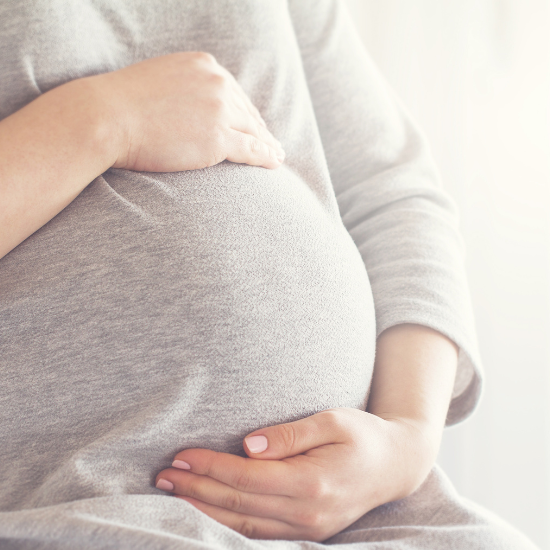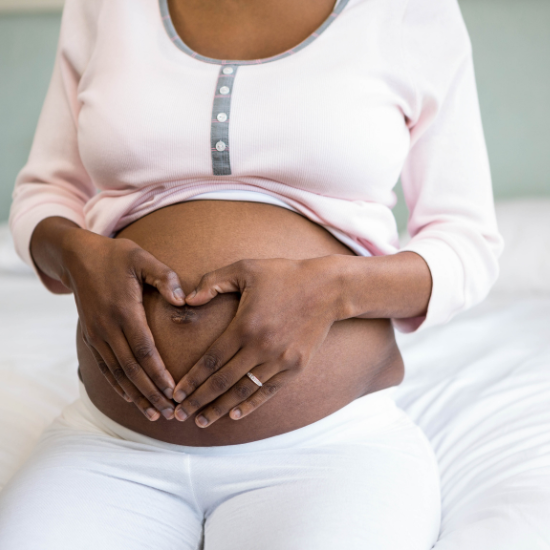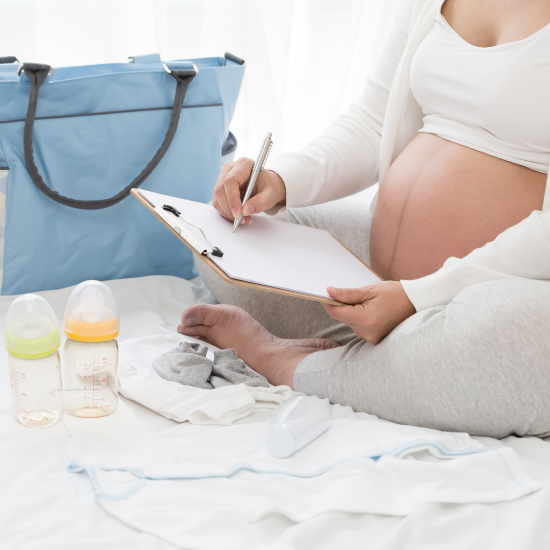On this page
So you’re having a baby! First of all congratulations from all of us here at Northern Lincolnshire and Goole NHS Foundation Trust.
Our teams are here to support you through every step of your pregnancy journey, giving you help and advice about keeping yourself and baby healthy – and helping you prepare for everything from weird cravings to giving birth.
There’s so much information out there that it’s easy to get overwhelmed, so we have put together this simple guide about what to expect week by week, and advice about how you may be feeling, things to look out for, when we need to see you and why.
Please remember, we’re all different, so while this is a general guide to what’s happening when, your journey may vary a little and that’s nothing to worry about.
If there’s anything you want to know that’s not covered here, please don’t hesitate to speak to us. There’s no such thing as a daft question – even when baby brain kicks in – and our expert teams are more than happy to give you advice and reassurance.
For non-urgent questions, you can contact the team via our dedicated Maternity Facebook page or our regional colleagues making up the Local Maternity and Neonatal System.

You and your baby – what to expect in weeks one to twelve
- One to three weeks
- Four weeks
- Five weeks
- Six weeks
- Seven weeks
- Eight weeks
- Nine weeks
- 10 weeks
- 11 weeks
- 12 weeks
There are also a number of things you might want to start thinking about, including:
- The screening tests you’ll be offered to check for health conditions that could affect you or your baby:
- The potential risks associated with Group B Streptococcus (Group B Strep, Strep B, Beta Strep, or GBS) – a type of bacteria which lives in the intestines, rectum and vagina of around 2-4 in every 10 women in the UK (20-40%).
- Where should I have my baby? Are you considering a home birth? If so, this guide will give you in the information you need to make the right choice for you and your baby.
- If you are more than 10 weeks pregnant or have a child under the age of four, you may be entitled to help to buy healthy food and milk through the Healthy Start scheme.
- The vaccinations that we recommend you have to protect you and your baby, including whooping cough, Covid and flu.
- Maintaining a healthy lifestyle to help you and your baby have a safer pregnancy.
- With all the changes that happen during pregnancy and early parenthood, it’s no surprise that it can have an impact on your mental health. Find out more about the help and support available for you and your partner.

You and your baby – what to expect in weeks 13 to 27
- 13 weeks
- 14 weeks
- 15 weeks
- 16 weeks
- 17 weeks
- 18 weeks
- 19 weeks
- 20 weeks
- 21 weeks
- 22 weeks
- 23 weeks
- 24 weeks
- 25 weeks
- 26 weeks
- 27 weeks
As your pregnancy continues, there more things you might want to start to consider, including:
- How much is your baby moving? Sometimes you can start to feel baby moving as early as 16 weeks, but for most people it’s between 18 and 24 weeks. It’s not only an amazing feeling but something you need to keep tabs on, as Every Kick Counts.
- You might want to start putting together a plan and record of your individual choices for your pregnancy, birth and early parenthood. There’s a video and guide on how to do it on the LMNS website.

You and your baby – what to expect in weeks 28 to 40+
- 28 weeks
- 29 weeks
- 30 weeks
- 31 weeks
- 32 weeks
- 33 weeks
- 34 weeks
- 35 weeks
- 36 weeks
- 37 weeks
- 38 weeks
- 39 weeks
- 40 weeks
- 41 weeks
- 42 weeks
As those weeks creep by and it gets closer to your due date, now’s the time to start preparing yourself for when baby arrives.
Things you may want to start thinking about include:
- Helping your baby develop and nurturing the bond between you. There’s a lovely guide called Building A Happy Baby on the UNICEF website that’s full of tips and ideas covering your pregnancy and after baby makes their big appearance.
- Feeding your baby. We would always encourage you to breastfeed if possible in order to give your little one the best start in life. However, we know that it’s not always right for you and your baby and we’re here to support you whatever your decision. Here you can find out more about expressing your milk, and safe bottle feeding.
- From where baby goes to sleep to the temperature of the room they’re in, there are quite a few factors to take into consideration when it comes to safe sleeping. The Lullaby Trust has great, easy to follow advice to help you get everything ready and give you much needed peace of mind. You can find out more out how to keep your baby warm (Thermoregulation) on our resources page.
- Registering the birth of your baby. All births in England, Wales and Northern Ireland must be registered within 42 days (six weeks) of your child being born. You should do this at the local register office for the area where the baby was born (see the links below). If you cannot register the birth in the area where the baby was born, you can go to another register office and they will send your details to the correct office. This is called ‘making a declaration’.
- Sometimes, your waters will break (also known as the Spontaneous Rupture of Membranes, or SROM) but you don’t go into labour. Unless there are specific reasons why not, it’s likely you’ll be able to go home. This leaflet will give you everything you need to know to look after yourself and your baby until they are ready to put in an appearance.
Going home after the birth
This will be discussed with you shortly after delivery and we aim to get you home as soon as possible after the birth.
After you have gone home you will be seen by one of our midwives for at least the first 10 days following the birth of your baby, but this can be extended up to 28 days after the birth if required/ necessary.
Visits will be discussed with you and may not be on a daily basis and will generally be conducted at one of our community clinics, although sometimes it is necessary for us to visit you at home if there is an identified need.
24-hour support is offered via the hospital services and the midwives are available on-call for emergency situations.